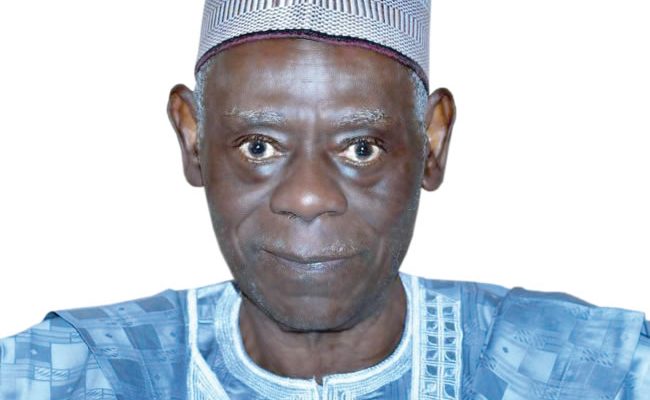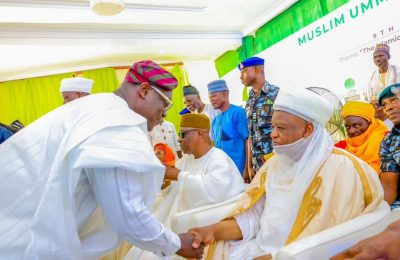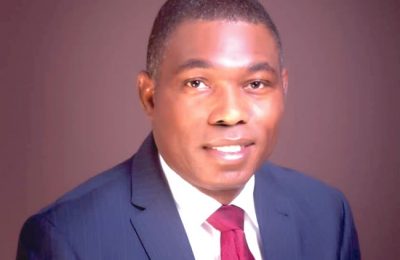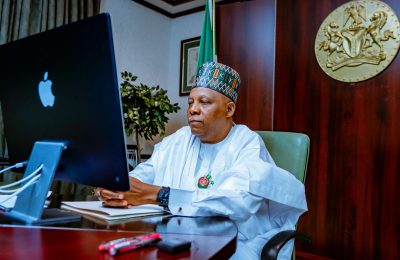FORMER secretary general of the Arewa Consultative Forum (ACF), Mr Anthony Sani, in this interview with KUNLE ODEREMI, talks about calls for five-year single term tenure for president, issues surrounding tribunal and court judgments on post-election matters, former President Olusegun Obasanjo’s advocacy on Afro democracy as against liberal democracy.
The judiciary appears to be in the eye of the storm following what observers perceive as inconsistencies and contradictions in the judgments of different tribunals and the Appeal Court on matters concerning the general election. What does this mean to you and portend for the country?
The public outcry over inconsistencies and contradictions in the judgement by the election tribunals and the courts on the matters concerning general elections are clearly understandable. You would recall in the case between Rt. Honourable Amaechi and Chief Sebastian, the Supreme Court ruled that because Chief Amaechi had won the party primaries against Mr Sebastian, he (Amaechi) be sworn in without having to undergo any elections; reason being that electoral mandate is for political parties while the candidates hold the electoral mandate in trust for their parties. But when some governors defected, they went with their electoral mandate instead of leaving them behind in their former political parties. However, in the case of Zamfara State, the court retrieved the electoral mandate given to APC and gave to PDP. Hence all those who won under APC were sacked in favour of PDP on account of flawed APC primaries. The same contradiction or inconsistency happened in Bayelsa State where the court retrieved APC victory and gave to PDP’s governorship candidate on account of questionable certificate by his running mate. Many of us thought that since the electoral mandate was for APC, the court should have ordered APC to substitute the running mate rather than taking the electoral mandate from APC and give to PDP. What about the case of Senator Ahmad Lawan, Senator Akpabio and Mr Peter Obi where the courts said party primaries are internal affairs of political parties which is no go area? I think all these have happened because our judiciary is in love with technical justice against substantive justice derived from natural justice. Yet, I dare say the situation is not beyond redemption by the courts themselves who should place more premium or emphasis on substantive justice than on technical justice.

Another contentious issue that has resurfaced in the political space lately is the possibility of the country becoming a one-party state. To what extent do you agree with the claim that the APC is determined to foist a one-party system on Nigerians as being claimed by the opposition, following the outcomes of post-election cases in the courts?
When PDP was in power, such allegations of foisting one party-state arose; more so when the party boasted that it would rule for 60 years. That did not happen. People are entitled to show preferences for a particular party for a long time. Consider America where battleground or swing states are hardly more than 10 states out of 50 states. Yet, America is not one-party state. In some developed democracies, some of their provinces have been ruled by one party for 50 years. That does not make them one-party state.

Some persons, including Alhaji Atiku Abubakar have revived the debate for a five-year single term for president. The contention is that the system will help reduce tension and acrimony associated with elections and the struggle for power.
I do not subscribe to a single tenure because a single tenure does not have motivation for performance as instrument of leadership or management. In a single tenure, the good, the feckless and the bad are grouped together, irrespective of level of performance. What is more, rotation of presidency by zone is admission of failure of leadership to provide good governance and fair distribution of access to national resources by way of appointments, employment, projects and contracts. As a result, people are being made to believe that the panacea to such failure of leadership is for such access to national resources to be turn by turn. And when you consider the so many dividing lines like ethnicity, religion, generational, gender, in the polity, one can hardly avoid the conclusion that rotation of presidency by zone would not address the challenges posed by poor governance, especially when motivation for performance is killed through single tenure. As regards how to address any problem of abuse of incumbency, Nigeria can adopt the practice by Chile and Uruguay, which allows multiple tenure that are not consecutive. That is to say, no president presides over elections where he is a candidate. Or we adopt the model by Bangladesh which only caretaker government conducts election.
What are the weak and strong points of the Chilean and Uruguayan model, or the Bangladesh version, given our peculiarities as a country?
Both Chile and Uruguay practice multiple tenures that are not consecutive in order to prevent abuse of incumbency and at the same time allow performances and motivation to play their roles in the leadership style. The same with Bangladesh which caretaker government prevented abuse of incumbency. If one performs well, he could be rewarded with re-election, hence the motivation to perform.
Ex-President Olusegun Obasanjo believes liberal or western democracy, to be precise, has failed to work in Africa, and has advocated a review that will be based on the peculiarities of countries on the continent.
When you consider the former president’s pedigree of how he practised the western democracy, more in the breach, it is difficult for anybody to share his sentiments, more so that he does not know what he means by Afro democracy, where the whole population of the indigenes would be involved in governance. It is important to note that democracy may differ in forms, but when it comes to its three elements of justice, liberty and common decency, democracy is the same and universal. Those who talk of homegrown democracy may as well reinvent the wheel and redefine the truth.
Kindly expatiate what you meant by Obasanjo practised democracy in the breach.
President Obasanjo used his presidential power and caused the impeachment of some governors like in Plateau, Bayelsa and Oyo states. He also denied local governments in Lagos states their subventions. It was President Umaru Yar’Adua, who released the money to them later. Though he denies it, we all know President Obasanjo wanted a third term. All these were in breach of the constitution and make it impossible for most Nigerians to believe the former president is qualified to condemn western democracy which he never practised.
On the other hand, former Vice President Atiku has called for a merger among the main opposition so as to put them in better stead against the ruling APC. How realistic is the proposal?
When you consider the trite that democracy without a sturdy opposition is a sham, then, you cannot fault the former vice president, moreso, that APC is a product of such merger of smaller political parties. In addition, Atiku may be learning the hard way from the common place narrative that President Bola Ahmed Tinubu rose from the ashes of opposition split. For examples, Musa Kwankwaso of the New Nigeria Peoples Party (NNPP), Peter Obi of Labour Party and Governor Nyesom Wike’s G-5 all came from the main opposition party.
In his maiden interview with a national television station after leaving office, President Muhammadu Buhari accused Nigerians of being materialistic, hence the frantic bid made by his administration to tackle the mentality. He also complained about the what he regarded as pubic lethargy towards his determined efforts to tame corruption. Do you share his thoughts on those issues and why?
I agree Nigerians are materialistic with corruptive tendencies which the former president knew much about before bidding for the coveted post of president. Nigerians were also used to President Buhari’s pedigree during his first coming and voted him with the express hope he would bring about a cultural renaissance against undue sense of materialistic disposition and corruption. But the president did not help matters when he could not locate the conviction needed to sack those in his government and were reported to be corrupt. If Buhari sacked those in the government perceived to be corrupt, everybody would have sat up.
But, I am happy to note that the former president has admitted that his best was not good enough to address the myriad of challenges that confronted his regime. I hope President Bola Tinubu would learn some few things from the experiences of President Buhari.
The other opposition parties say they are not ready for any merger, ostensibly believing they can individually build on the relative gains they achieved in the last elections.
As I have mentioned, any democracy without viable opposition as alternative platform is a sham. It is therefore the business of the political parties to either come together and provide the needed opposition or to stand on their own. And if they stand on their own, I hope they would not say the nation is drifting towards a one-party state. As regards challenges posed by lack of political ideology in the political parties, one had thought their coming together would enable realignment on the basis of ideology and prevent indiscriminate defections by the politicians who are expected to set the pace and dare the rest of us to follow.
Is the idea on merger not akin to a gang-up against the APC?
Ganging up is part of practices of multiparty democracy. It was gang up that brought APC in the first place. You saw how eight political parties came together and defeated the party in Israel a year or two ago. The same thing happened in Germany. Therefore, gang up is part of mechanism of multiparty democracy.
READ ALSO FROM NIGERIAN TRIBUNE







